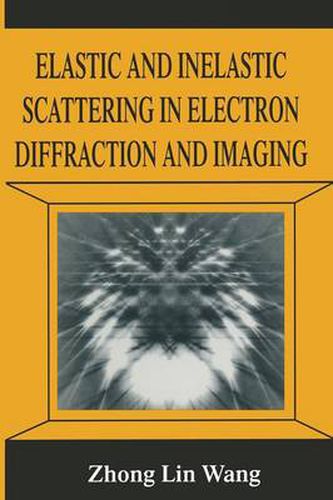Readings Newsletter
Become a Readings Member to make your shopping experience even easier.
Sign in or sign up for free!
You’re not far away from qualifying for FREE standard shipping within Australia
You’ve qualified for FREE standard shipping within Australia
The cart is loading…






This title is printed to order. This book may have been self-published. If so, we cannot guarantee the quality of the content. In the main most books will have gone through the editing process however some may not. We therefore suggest that you be aware of this before ordering this book. If in doubt check either the author or publisher’s details as we are unable to accept any returns unless they are faulty. Please contact us if you have any questions.
Elastic and inelastic scattering in transmission electron microscopy (TEM) are important research subjects. For a long time, I have wished to systematically summarize various dynamic theories associated with quantitative electron micros copy and their applications in simulations of electron diffraction patterns and images. This wish now becomes reality. The aim of this book is to explore the physics in electron diffraction and imaging and related applications for materials characterizations. Particular emphasis is placed on diffraction and imaging of inelastically scattered electrons, which, I believe, have not been discussed exten sively in existing books. This book assumes that readers have some preknowledge of electron microscopy, electron diffraction, and quantum mechanics. I anticipate that this book will be a guide to approaching phenomena observed in electron microscopy from the prospects of diffraction physics. The SI units are employed throughout the book except for angstrom (A), which is used occasionally for convenience. To reduce the number of symbols used, the Fourier transform of a real-space function P’®, for example, is denoted by the same symbol P’(u) in reciprocal space except that r is replaced by u. Upper and lower limits of an integral in the book are (-co, co) unless otherwise specified. The (-co, co) integral limits are usually omitted in a mathematical expression for simplification. I very much appreciate opportunity of working with Drs. J. M. Cowley and J. C. H. Spence (Arizona State University), J.
$9.00 standard shipping within Australia
FREE standard shipping within Australia for orders over $100.00
Express & International shipping calculated at checkout
This title is printed to order. This book may have been self-published. If so, we cannot guarantee the quality of the content. In the main most books will have gone through the editing process however some may not. We therefore suggest that you be aware of this before ordering this book. If in doubt check either the author or publisher’s details as we are unable to accept any returns unless they are faulty. Please contact us if you have any questions.
Elastic and inelastic scattering in transmission electron microscopy (TEM) are important research subjects. For a long time, I have wished to systematically summarize various dynamic theories associated with quantitative electron micros copy and their applications in simulations of electron diffraction patterns and images. This wish now becomes reality. The aim of this book is to explore the physics in electron diffraction and imaging and related applications for materials characterizations. Particular emphasis is placed on diffraction and imaging of inelastically scattered electrons, which, I believe, have not been discussed exten sively in existing books. This book assumes that readers have some preknowledge of electron microscopy, electron diffraction, and quantum mechanics. I anticipate that this book will be a guide to approaching phenomena observed in electron microscopy from the prospects of diffraction physics. The SI units are employed throughout the book except for angstrom (A), which is used occasionally for convenience. To reduce the number of symbols used, the Fourier transform of a real-space function P’®, for example, is denoted by the same symbol P’(u) in reciprocal space except that r is replaced by u. Upper and lower limits of an integral in the book are (-co, co) unless otherwise specified. The (-co, co) integral limits are usually omitted in a mathematical expression for simplification. I very much appreciate opportunity of working with Drs. J. M. Cowley and J. C. H. Spence (Arizona State University), J.